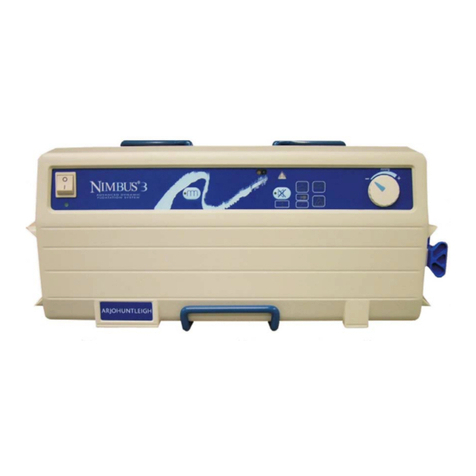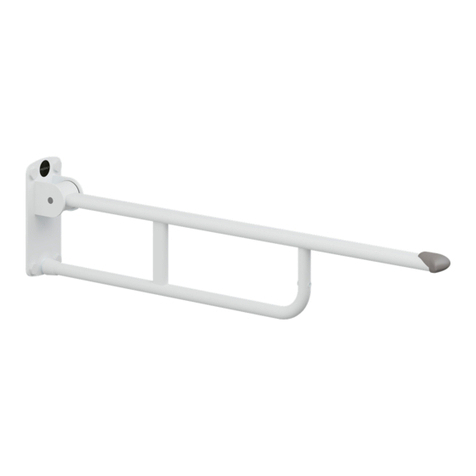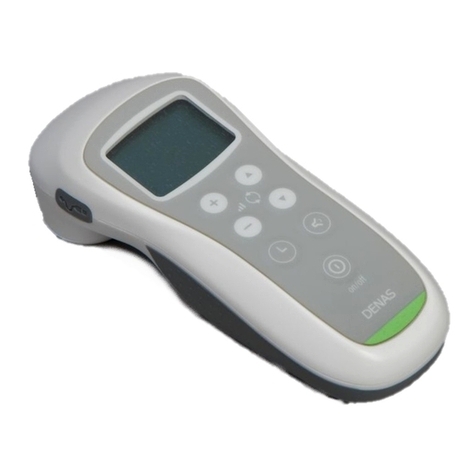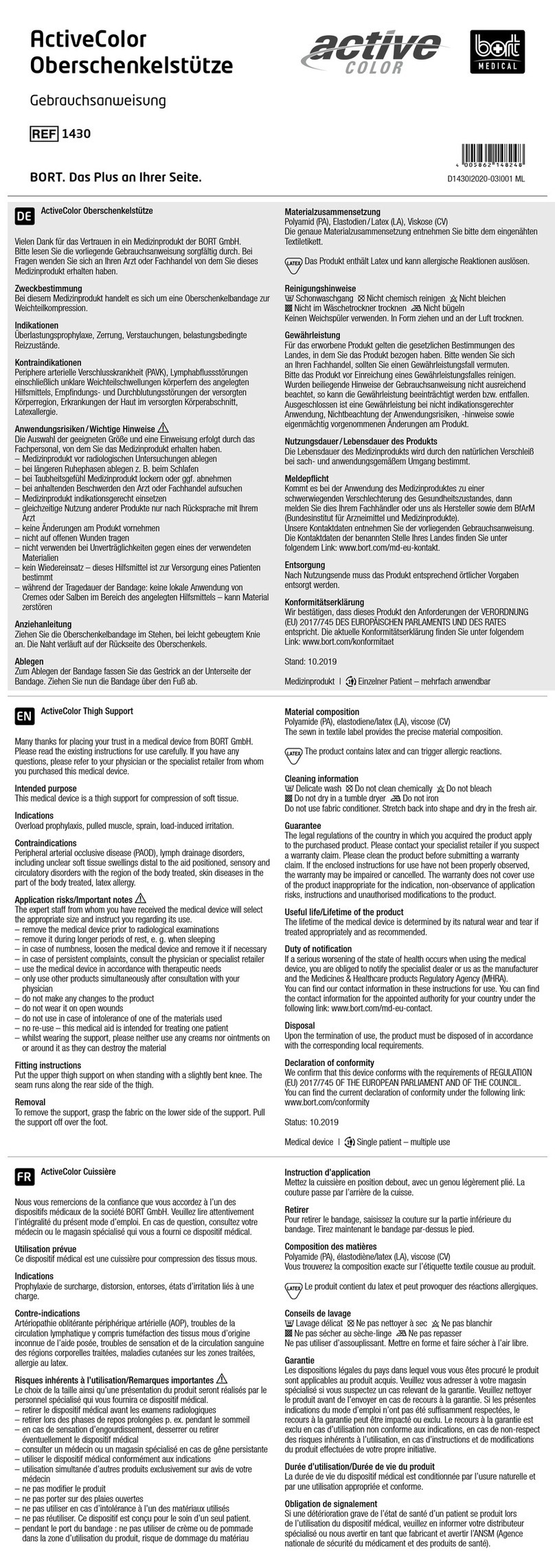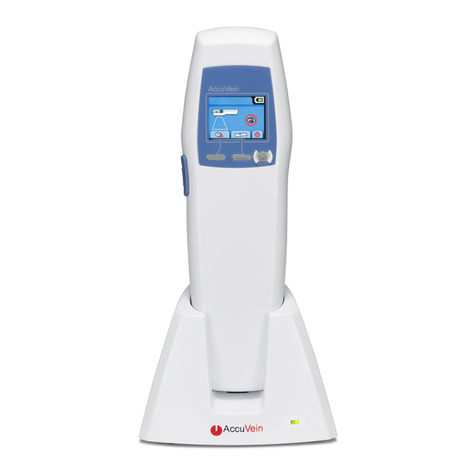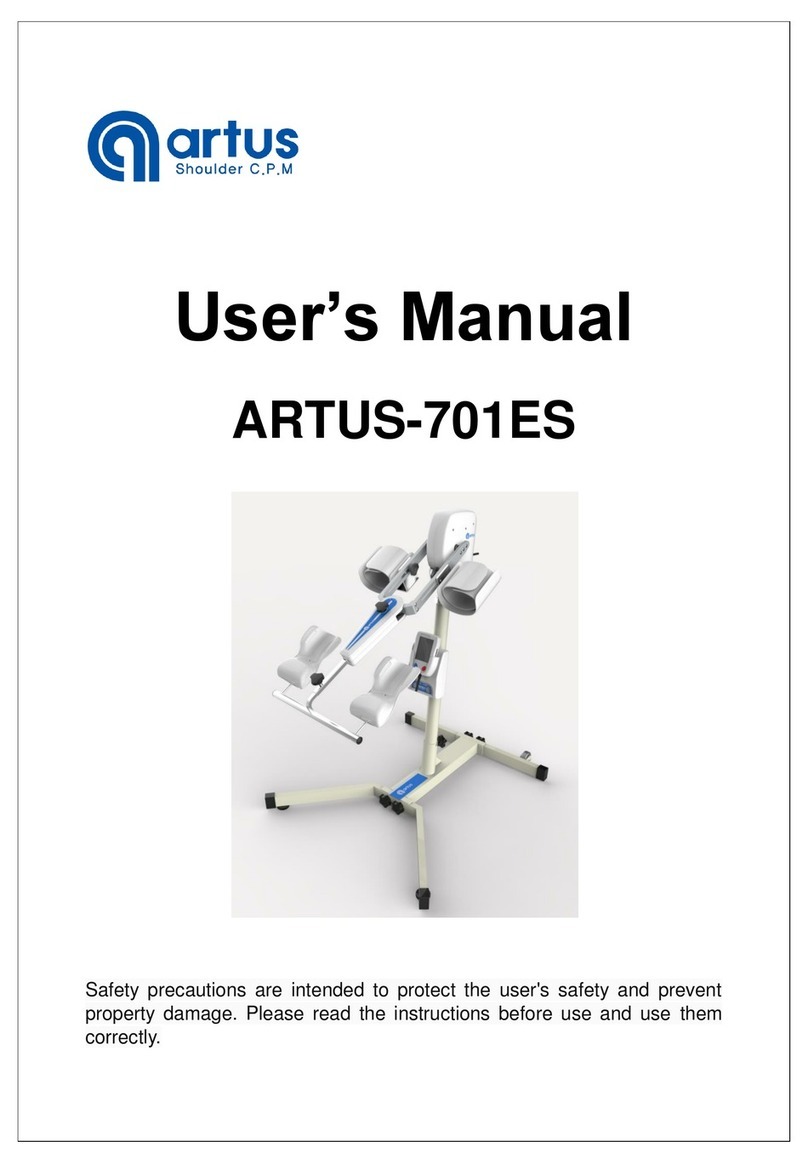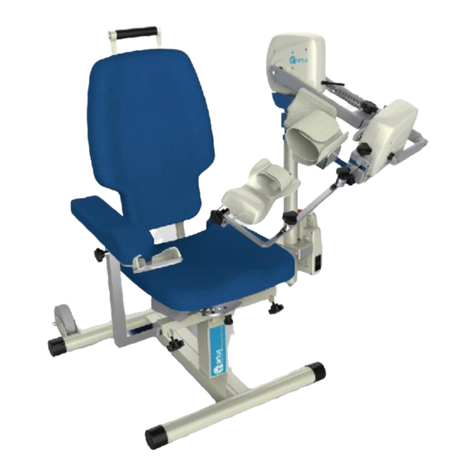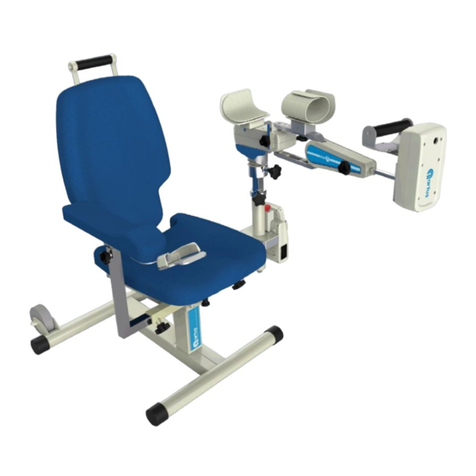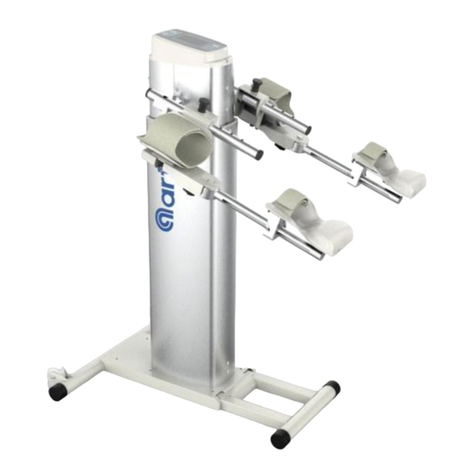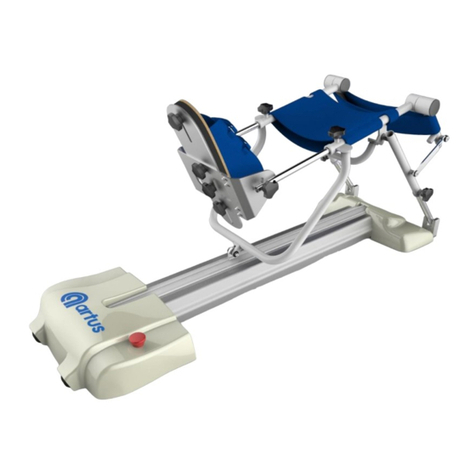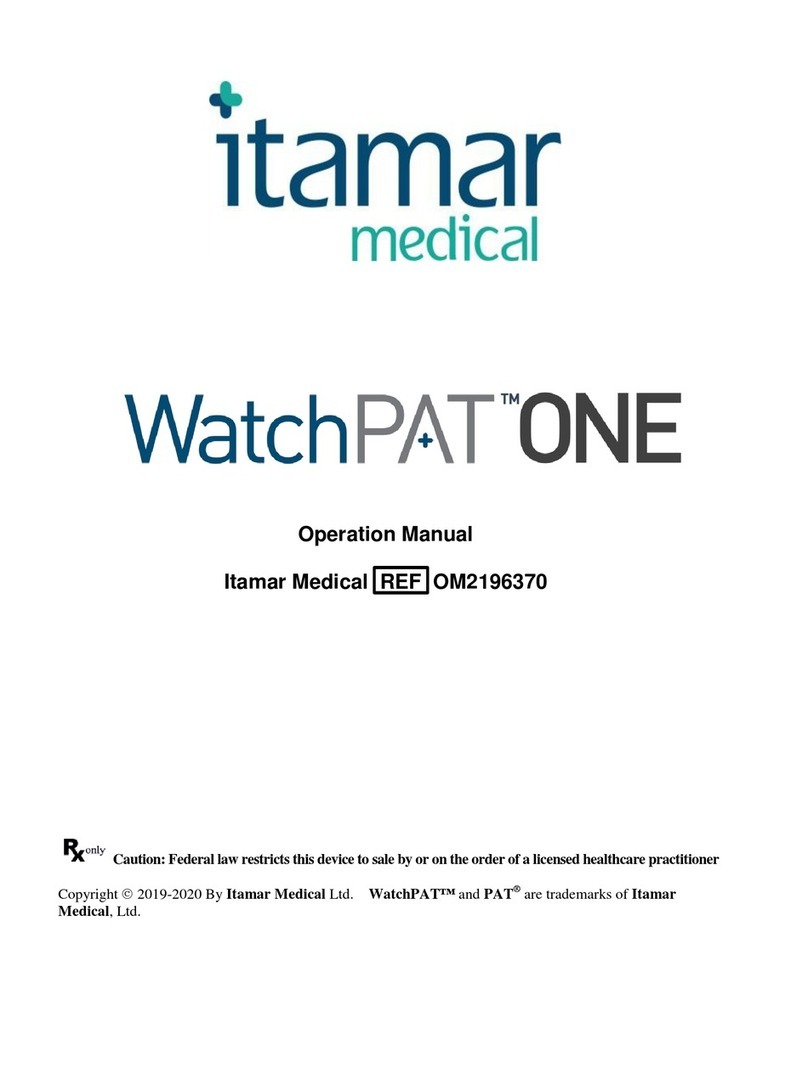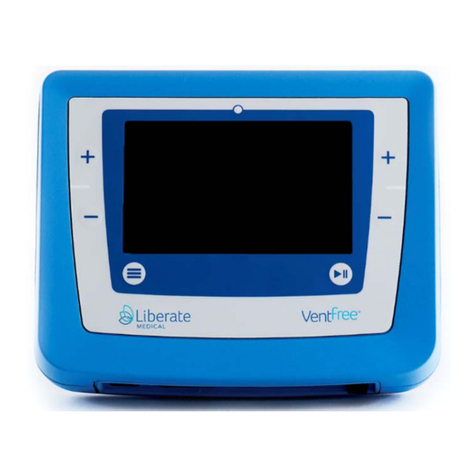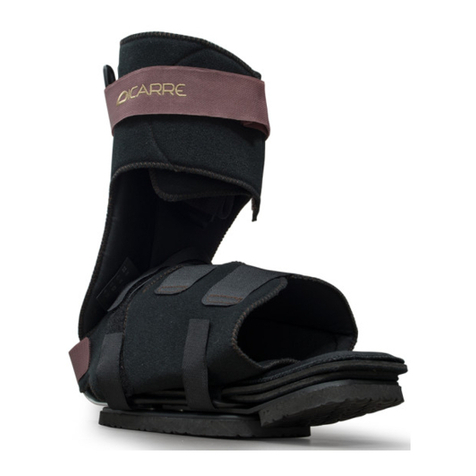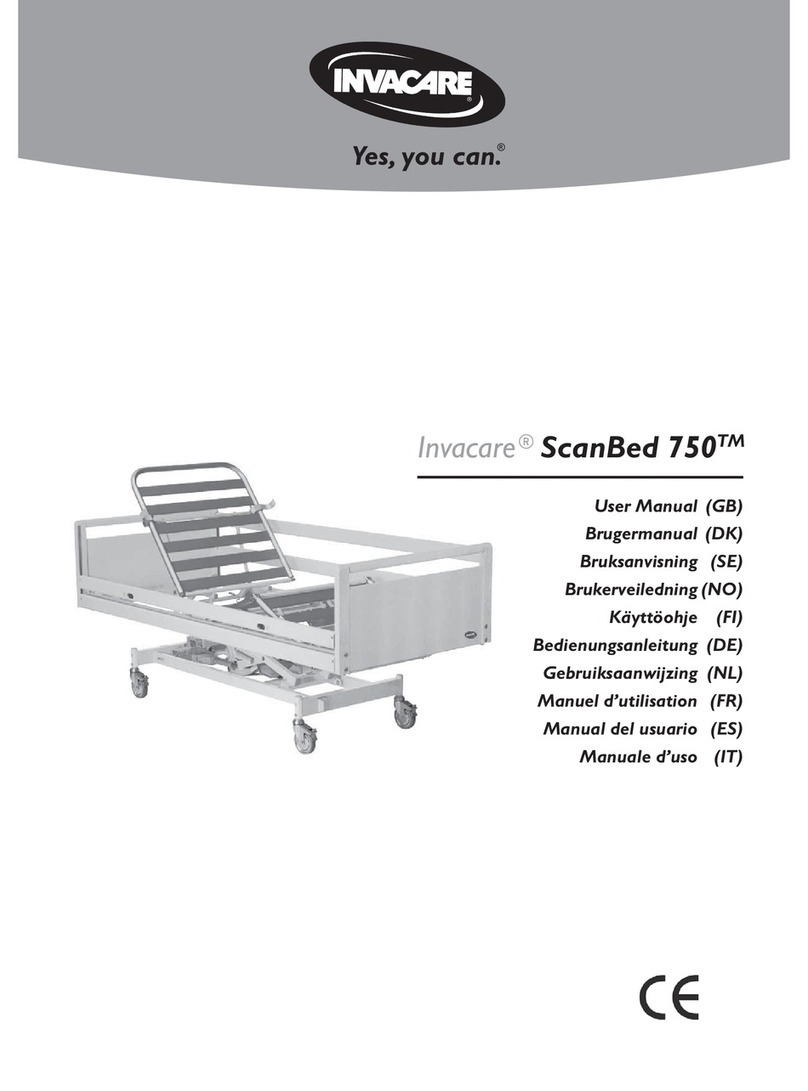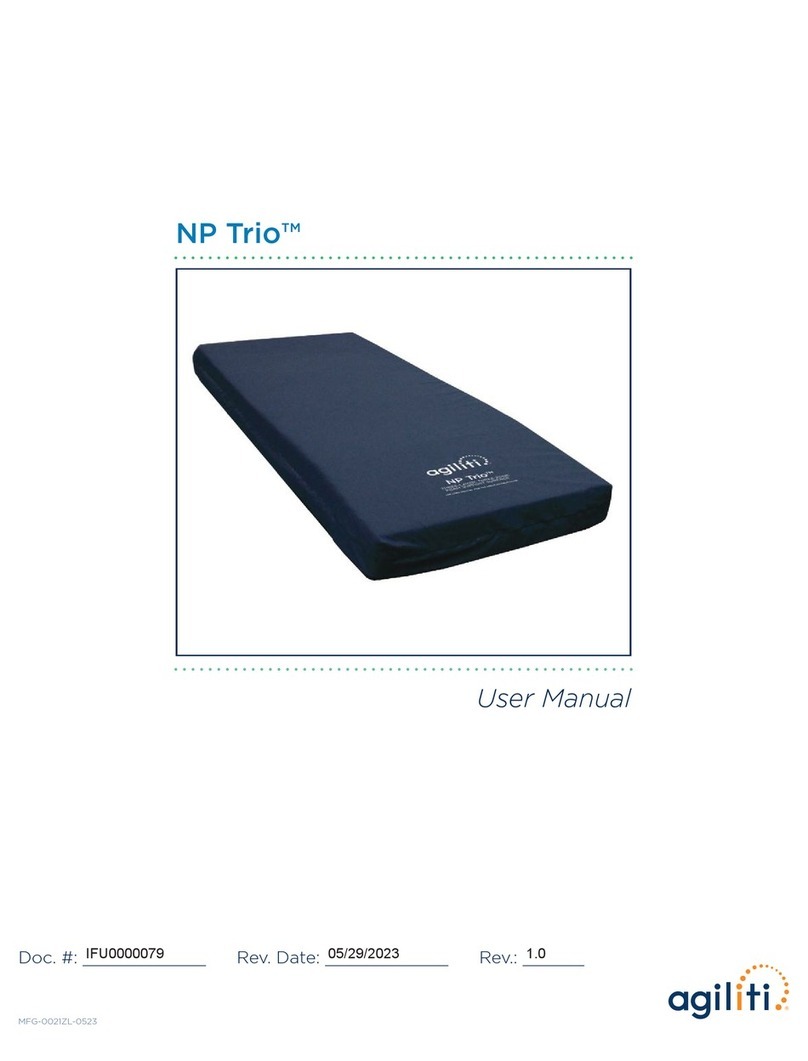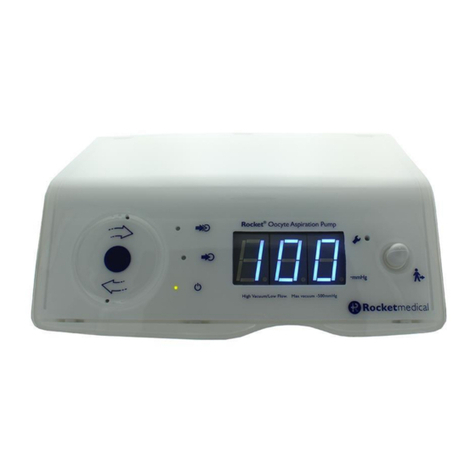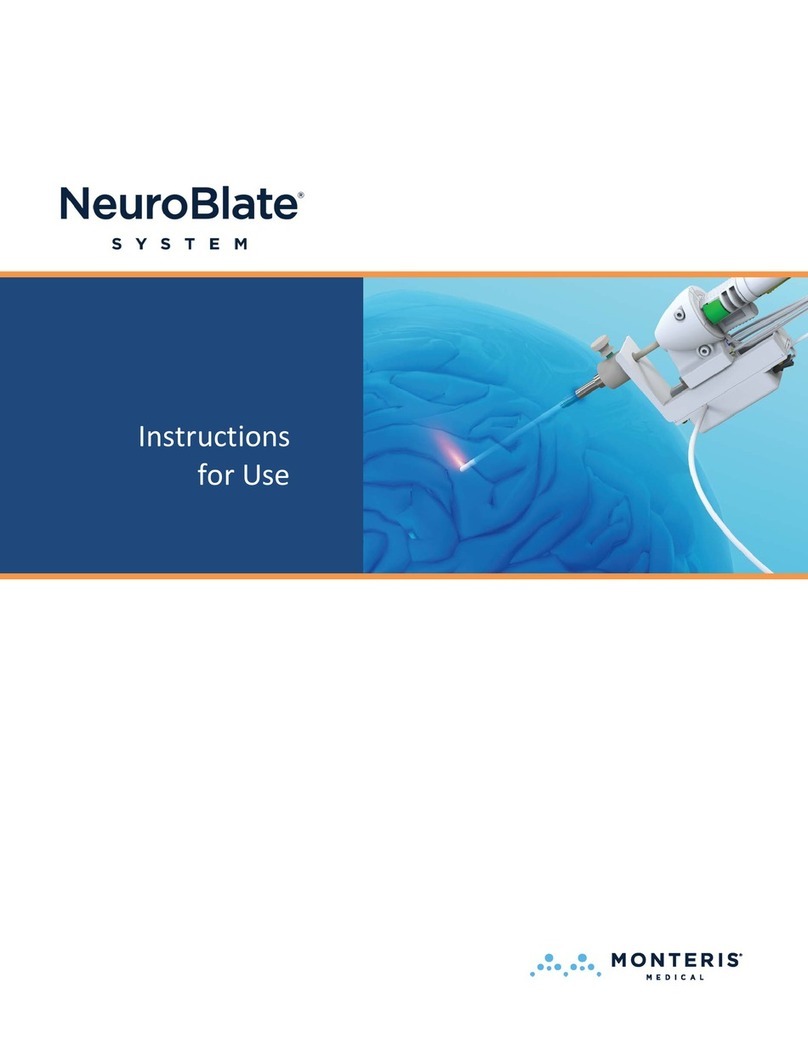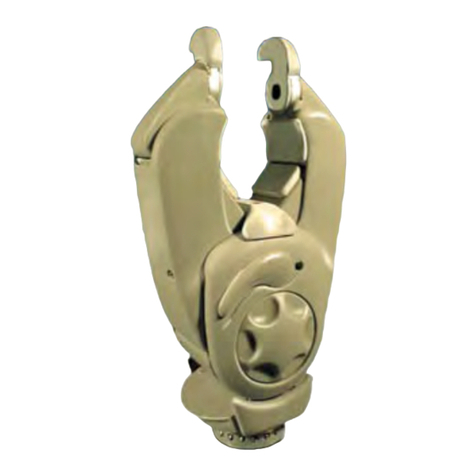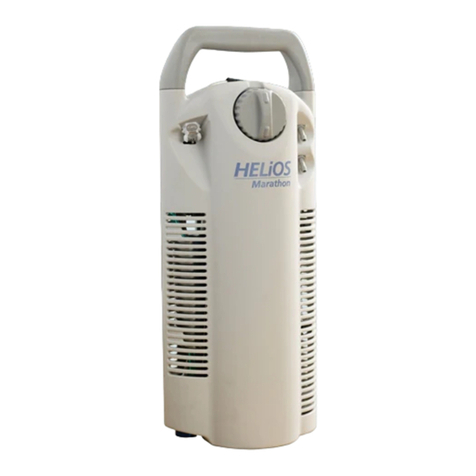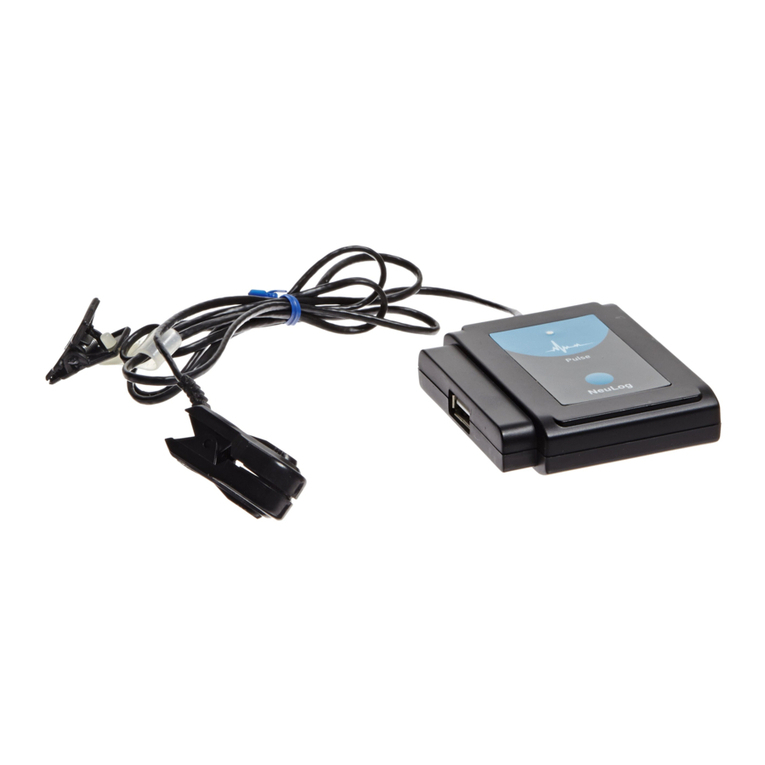
1.3 Information of Electro-Magnetic Compatibility (EMC)
Warning : Please note that emitted electromagnetic signals from the external environment
may affect the patient and also ARTUS-301A.
Warning : Do not use ARTUS-301A near high-power wireless equipment such as mobile
phone, this could cause malfunction.
Caution : ARTUS-301A is compliant with medical device regulations 93/42 / EEC and it is
designed to protect it from electromagnetic signals.
Caution : Portable and mobile frequency (RF) communication device may affect the
electronic medical devices.
Caution : Only the component we provide are recommended to use, other unspecified
devices may cause increasing emissions and immunocompromised status.
The RF of “ARTUS-301A” emissions are very low and are not likely to cause interference
in nearby electronic equipment.
The “ARTUS-301A” is suitable for use in all establishments other than domestic and those
directly connected to the public low voltage power supply network that supplies buildings
used for domestic purposes.
Mains (AC) power quality should be that of a typical commercial or hospital environments.
Floors should be wood, concrete or ceramic tile. If floor is covered with synthetic material,
the relative humidity should be at least 30% to avoid excessive static electricity.
Warning : The “ARTUS-301A” should not be situated adjacent to, or stacked with,
other electronic equipment. If the system must be in installed in close
proximity to other equipment, both the “ARTUS-301A” and the nearby
equipment should be observed to verify normal operating in that
configuration.
Caution : The “ARTUS-301A” has been designed to meet the standards of
IEC60601-1-2 for electromagnetic compatibility; however some
computer equipment unintentionally emits strong interfering RF signals.
Portable RF communication devices may also affect “ARTUS-301A”.
Warning : Use of accessories other than those specified, may result in increased
emissions, or decreased immunity of this system.
